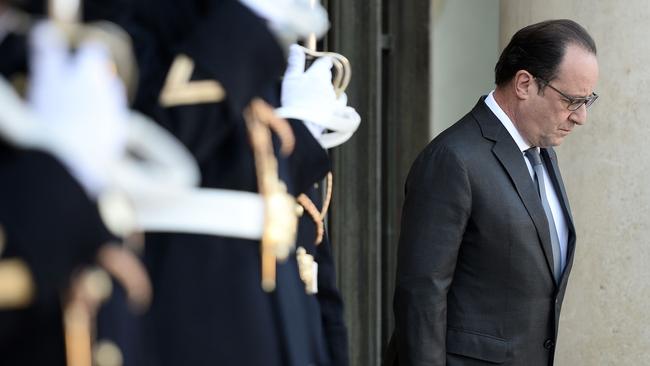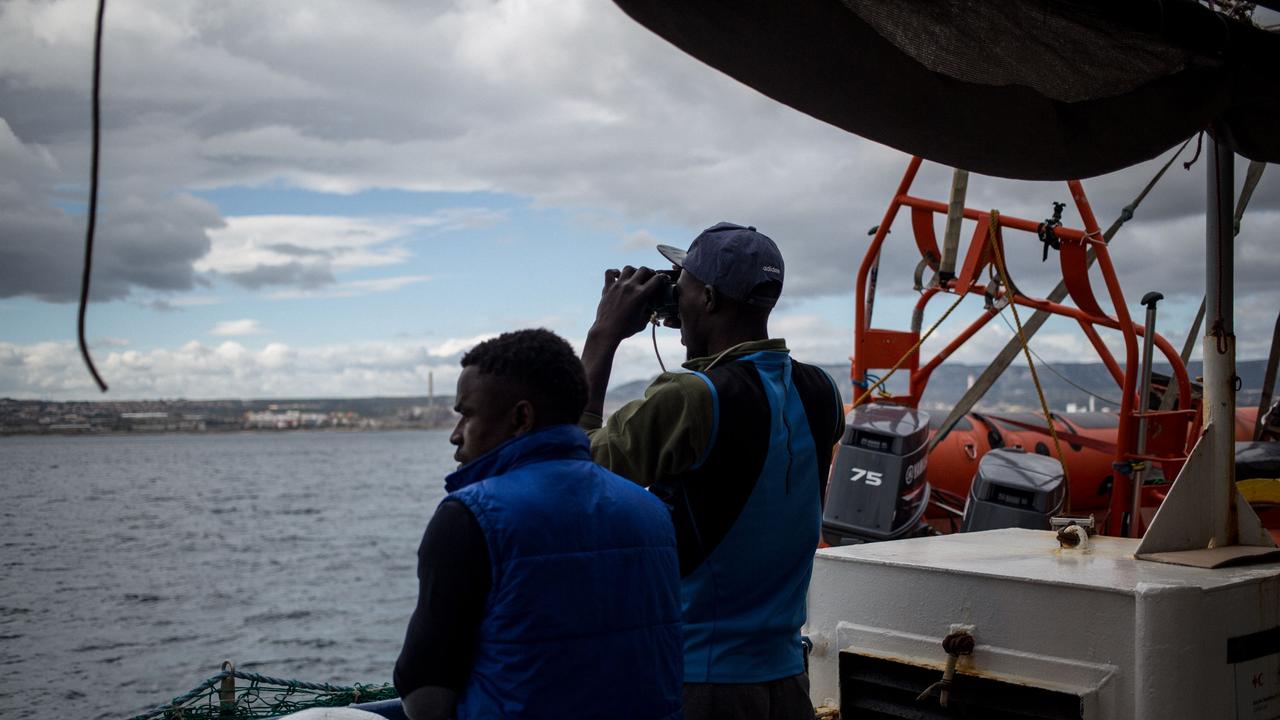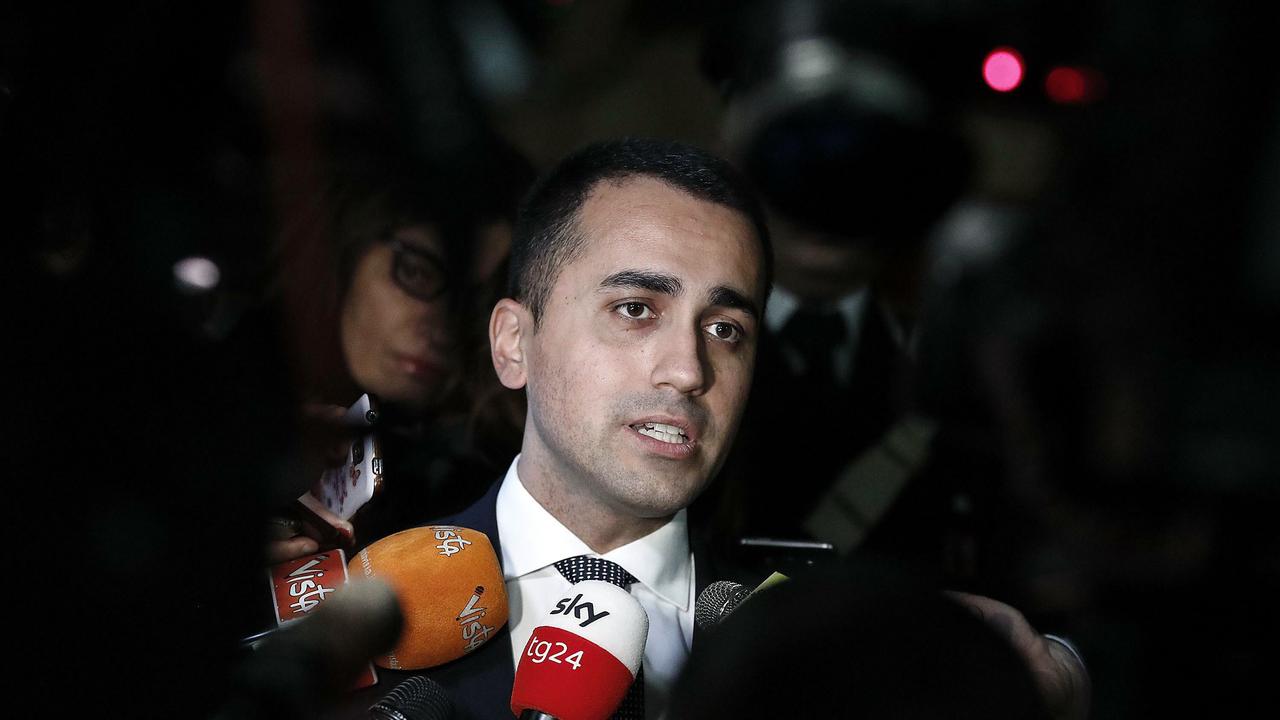Paris attacks: Passport puts pressure on Europe’s porous borders
The fragile plans of the EU to cope with more than a million migrants are quickly unravelling.

The fragile plans of the EU to cope with more than a million migrants moving into northern Europe this year are quickly unravelling after the passport of a Syrian migrant was found near one of the Paris terrorist suicide bombers.
European leaders immediately moved to tighten border checks on the unrelenting flow of migrants from the Middle East and Africa after it appeared one of the long-held fears of many populist and conservative supporters may have been realised: that Islamic State radicals have been using the porous border policy for migrants to infiltrate Europe.
“It is clear now that together with the victims of Islamic-fascism in the Middle East that come as refugees, extreme elements are crossing to Europe,” Greek Defence Minister Panos Kammenos said.
French Prime Minister Francois Hollande immediately instituted border checks on Friday night saying at the time that he wanted to stop those who might bring further harm.
Poland has now rejected the EE’s redistribution plan for 160,000 migrants, which was only arrived at after much resistance from Eastern European countries in the first place and which had only moved 130 refugees in the past six weeks.
Talks held in Vienna aimed at reaching a political solution to the Syrian crisis that has sparked the refugee exodus provided some cause for hope following the Paris attacks.
The US, Russia and other world powers set a target of January 1 for formal negotiations to start between the Assad regime and the opposition.
While US Secretary of State John Kerry said differences remain among world powers over the future of Syrian President Bashar al-Assad, the group set a six-month timeframe for Syria to form an interim unity government and said they wanted free and fair elections within 18 months.
A political solution in Syria would relieve the pressure on Europe to deal with the unprecedented flow of migrants from the Middle East.
The hardened stance of Hungary — which put up a fence to stop the flow two months ago — has been seen in a new light by neighbouring countries fearful that they might be left with backlogs of refugees. Fences have been built on the Slovenia-Austria border and the Croatians are likely to quickly pull down the shutters.
In Italy Prime Minister Matteo Renzi said after an emergency intelligence briefing that security would be tightened nationwide.
Spanish Prime Minister Mariano Rajoy tried to reassure a nervous Spanish public, still bruised from the terrorist train attacks in Madrid in 2004, which killed 191 people.
“There is no cause that justifies yesterday’s atrocities nor beliefs that can shelter them,” Mr Rajoy said. “We are not in a war between religions but in a fight between civilisation and brutality.”
Slovakian Prime Minister Robert Fico said the attacks should open people’s eyes and he tightened security on his borders, particularly with Ukraine. “Everyone who illegally crosses borders must be seen as a security threat,’’ he said.
Significantly, the political pressure has intensified on German Chancellor Angela Merkel who just 24 hours before the slaughter of 129 people had been forced into a political compromise on the flow of 10,000 refugees a week into the country.
The issue will be firmly on the G20 agenda in Turkey this week.
Mrs Merkel has turned to Turkey to stop the flow of refugees setting off for Europe in the first place and help set up transit zones to assess the bonafides of the refugees, while also implementing a two-year waiting period for family reunion. But even after the Paris attacks and amid declining influence on the European agenda and at home, she was resolute to maintain her open-door policy.
“Let us reply to the terrorists by resolutely living our values and by redoubling those values across all of Europe — now more than ever,” Mrs Merkel said.
Her political allies, the Christian Social Union want a tougher stance. State Premier Horst Seehofer said: “In light of the increased migration to Germany, we have to know who is driving through our country.”
In the meantime Germany has tightened security checks on the French-German border.
Last month it was reported that French security services had identified a terrorist living in the Jungle in Calais, a refugee camp.
A former senior intelligence official told The New York Times: “This is becoming a strategy for them: to embed among the migrants.”
The leader of the right-wing National Front party, Marine Le Pen, urged Mr Hollande to implement more permanent border checks on all French borders.
“France and the French are no longer safe, it is my duty to tell you so,” she said at a news conference. “Whatever the European Union may say, it is essential that France recover the control of its national borders, once and for all. Without borders, neither security nor protection is possible.”
Additional reporting: The Wall Street Journal





